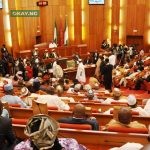In a significant boost to Nigeria’s economic prospects, international rating agency Standard and Poor’s (S&P) has upgraded the country’s credit outlook from negative to stable.
The decision was based on S&P’s assessment of the planned reforms proposed by President Bola Tinubu.
Credit ratings are an essential measure of a country’s ability to repay its debts, and they are determined by an independent evaluation of its financial health.
In a statement released on Friday, S&P confirmed Nigeria’s credit rating as ‘B-/B’, while revising the country’s outlook from negative to stable.
The statement read, “S&P Global Ratings revised the outlook on Nigeria to stable from negative. At the same time, we affirmed our ‘B-/B’ long- and short-term foreign and local currency sovereign credit ratings on Nigeria.”
S&P further elevated Nigeria’s long- and short-term national scale ratings to ‘ngBBB+/ngA-2’ from ‘ngBBB-/ngA-3’, highlighting the country’s improved reform momentum and recognizing it as the most creditworthy entity in the domestic markets. The transfer and convertibility assessment remains ‘B-‘.
The rating agency cited President Bola Tinubu’s recent policy decisions as significant contributors to the improved outlook.
Tinubu’s administration took steps such as removing petrol subsidies, suspending Godwin Emefiele as the Central Bank of Nigeria (CBN) governor, and overhauling the nation’s exchange rate policies.
“Upon assuming office on May 29, 2023, the new administration announced a series of reforms including the removal of fuel subsidies, the liberalization of the exchange rate regime, and governance changes at the Central Bank of Nigeria (CBN),” S&P explained.
The agency also highlighted the previous national assembly’s approval of the securitization of Ways and Means advances into long-term, lower-cost instruments, a move that is expected to have a positive impact on Nigeria’s public finances and balance of payments.
S&P projected that the elimination of petrol subsidies and the securitization of the Ways and Means advances would result in fiscal savings of approximately 2.5% of GDP in 2023.









